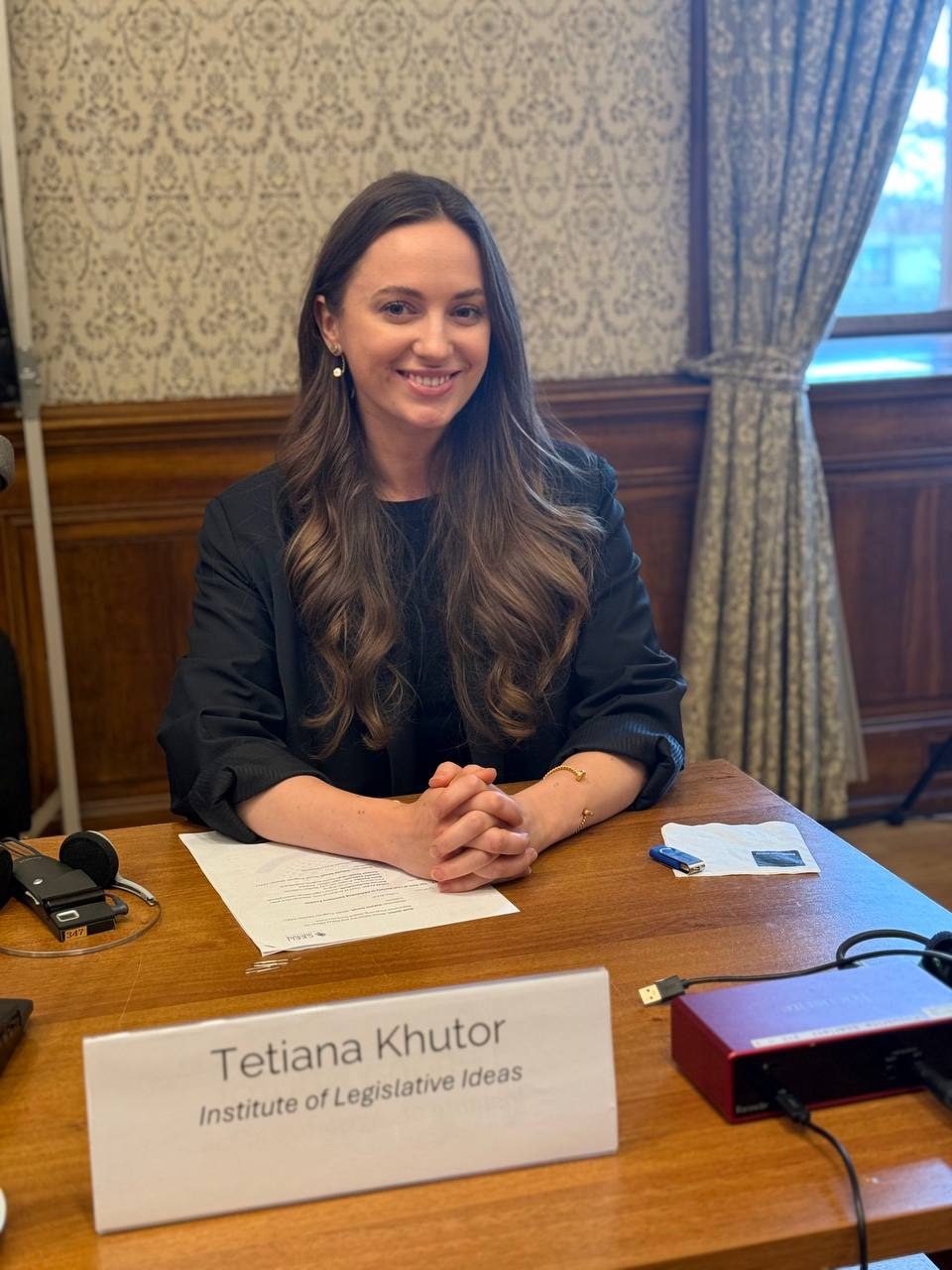Transfer of confiscated assets to Russia: key discussions at the international conference in the Czech Republic
On 6-7 December 2024, the second annual international conference ‘Criminalisation of Sanctions Evasion’, organized by CEELI Institute and the European Commission, occurred in Prague, Czech Republic. The event was attended by experts from different countries, including the United States, Germany, France, Latvia, the Czech Republic, and others. The event provided a platform for discussing modern new approaches to combating violations of sanctions legislation and the use of confiscated assets to support victims of war. The conference was attended by leading experts, representatives of governments, international organizations, and civil society. Representatives of the Institute of Legislative Ideas were also present: Tetyana Khutor, Head of the Institute, Andriy Klymosiuk, Project Manager, and Mykola Rubashchenko, Legal Analyst.
The conference program was rich and included key issues related to national legislation, mechanisms of asset confiscation, and their transfer for the needs of war victims. The first day began with a panel discussion of international experience in these areas. Tetyana Khutor presented a draft law aimed at criminalizing the violation and circumvention of sanctions, which was developed by experts of the Institute of Legislative Ideas. She emphasized that the introduction of personal criminal liability for sanctions violations is a crucial step to strengthen sanctions pressure and harmonize Ukrainian legislation with EU law.
‘The purpose of sanctions is to protect the national interests, national security, sovereignty and territorial integrity of Ukraine, counteract terrorist activities, as well as prevent violations and restore the lost rights, freedoms and legitimate interests of Ukrainian citizens, society and the state,’ said Tatyana Khutor.
The session also discussed the experience of the United States, where an amendment to the State Budget Law (2023) created mechanisms for transferring proceeds from the confiscated property of sanctioned persons to help Ukraine. In particular, the US Department of Justice, through the Attorney General, can transfer such funds to the Secretary of State, who uses them under the International Assistance Act. The first examples of this approach have already been implemented: in 2023, $5.4 million confiscated from Russian oligarch Konstantin Malofeev was transferred to support the reintegration of Ukrainian veterans.
The second day of the conference was dedicated to the use of confiscated assets. Tatyana Khutor moderated a key session during which she presented proposals for directing fines and confiscated funds to support victims of Russian aggression. She gave examples of the successful experience of Lithuania, which adopted an amendment to the legislation allowing the use of both confiscated assets and fines for violating sanctions to finance the reconstruction of Ukraine.
Other European mechanisms were also discussed. The recently adopted EU Directive 2024/1260 on asset recovery and confiscation provides for the encouragement of the transfer of confiscated assets to countries affected by aggression.However, even before the adoption of this EU Directive, some Member States took the initiative to implement relevant measures at the national level. The implementation of this Directive is expected by 2026, which is why the participants stressed the need for prompt implementation of similar laws in all partner countries. For example, Germany has already frozen more than €722 million in assets that could potentially be used to rebuild Ukraine.
"The transfer to Ukraine of the confiscated assets of sanctions violators is fully in line with the universally recognized principle of returning criminal assets to the needs of the victim. This will have a significant positive impact both in the context of Ukraine's recovery and in the context of establishing international norms on sanctions restrictions and the inevitability of punishment for their violators,’ said Tetyana Khutor, Head of the ILI.
Among the main challenges, experts highlighted the problem of adapting international law to the realities of modern conflicts. It is necessary to introduce legal mechanisms that will allow the transfer of not only confiscated assets but alsofines for violating sanctions. In this context, Lithuania's example can serve as a model for other countries.
The potential of sanctions legislation was also discussed. According to OFAC, the US has already confiscated more than $1 billion for violating sanctions regimes. However, the transfer of these funds to Ukraine requires legislative changes, as the current law does not allow for the transfer of fines. At the same time, it was emphasized that such steps are critical to ensure fairness and restore confidence in the sanctions mechanism.
This international event has become an important platform for sharing experiences and developing new approaches to combating sanctions circumvention. The participants expressed a common position on the need to speed up the transfer of confiscated assets. This, in their opinion, will not only help Ukraine recover from Russian aggression but also strengthen the global sanctions policy.
"The transfer of assets of sanctions violators is not just a matter of financial support. It is a signal to the international community that there is no place for sanctions circumvention in the legal system and that criminals will pay for their actions,’ summed up Tetyana Khutor.
The Institute of Legislative Ideas expresses its gratitude to the conference organizers for the opportunity to present Ukrainian initiatives in the international arena and emphasizes the importance of joint efforts in creating effective mechanisms to combat sanctions circumvention. The efforts of platforms such as the CEELI Institute are extremely valuable in shaping global approaches to countering sanctions violations and assisting victims of conflicts.






